Humanities Center Faculty Fellows
Each Spring, we support outstanding faculty research with up to four (4) highly competitive Faculty Fellowships (three from the College of Arts and Sciences — one for research that directly relates to the Symposium theme — and one from the Maxwell School of Citizenship and Public Affairs). Visit our Forms and Funding page for details on how to apply.
Meet the current faculty fellows

Chris Hanson, Associate Professor, English. Humanities Center Faculty Fellow
- Faculty profile
- cphanson@syr.edu
- 413 Hall of Languages
- 315.443.4159
Project: Changing the (Video) Game: Adventure’s History and Legacy
Hanson's project examines the history and legacy of the 1976 computer game Adventure (Will Crowther and Don Woods), foregrounding unrecognized roles in its development and lasting influence. Hanson interrogates the technological shifts that facilitated the game’s evolution from a text-based computer game played without a monitor to its contemporary iteration in VR; also demonstrating how the game’s design and its availability on the ARPANET (the precursor to the internet) facilitated its rapid distribution and proliferation, but also more readily allowed Adventure to reach domestic spaces beyond the workplace—and thus new players and audiences. This project traces Adventure’s legacy through its influence on the pioneering work of Roberta Williams in developing the eponymous adventure game genre, the ongoing popularity of text adventures for visually impaired players using screen readers and growing contemporary industry efforts to make video games more accessible for players with disabilities.

Margaret Innes, Assistant Professor, Art and Music Histories. Humanities Center Faculty Fellow
- Faculty Profile
- mginnes@syr.edu
- 308L Bowne Hall
Project: Collective Forms: Socializing Photography in the Era of American Communism
Innes' book project examines photography’s theorization and use within the communist movement of the 1920s and 1930s, during one of the most violent periods of class struggle in American history. It focuses on two key formations—communist pictorial media and worker photography—that exemplify photography’s pivotal role in the socialist reorganization of life, from tactics of agitation, solidarity building, and party organizing to more diffuse models of cultural work. Drawing on extensive archival research and original analysis, Innes' research contributes to humanistic inquiry by illuminating photography’s historical relationship to social movements and prompting reflection on photography’s ongoing social potential today.

Denisa Jashari, Assistant Professor, History. Humanities Center Faculty Fellow - Maxwell
- Faculty profile
- djashari@syr.edu
- 538 Eggers Hall
Project: Spatial Conflicts: Producing the Urban Poor in Santiago, Chile, 1872-1994
Jashari's project examines a century of contestations over urban restructuring in Chile’s capital, Santiago. It demonstrates that the construction of pobladores as a social category identifying poor urban dwellers was a historical and spatial process. Politicians, federal and municipal authorities, architects, and urban planners viewed the urban poor and the spaces they inhabited as inseparable and as “problems” they ought to solve. The urban poor were not passive observers in this process. They instrumentalized the category of pobladores to mobilize resistance as they strategically employed the topography of shantytowns themselves. Placing pobladores at the center of the narrative reveals the spatial aspects of politics, the modern state, and the formation of social citizenship in Chile.

Marcia Robinson, Assistant Professor, Religion. "Symposium" Humanities Center Faculty Fellow
- Faculty Profile
- mrobin03@syr.edu
- 511 Hall of Languages
Project: "Out over 70,000 Fathoms" with the Lilies and the Birds: Kierkegaard on Religion
Robinson’s project maintains that Søren Kierkegaard’s Lily of the Field and the Bird of the Air is his most succinct articulation of religion. Standing at the climax of his polyvocal corpus, these discourses under Kierkegaard’s own name reveal that religion, for him, is fundamentally aesthetic. That is, religion is about perception of an Other—God—and oneself in relation to this Other. By situating these discourses in the existential aesthetics that three of his major pseudonyms contest over a series of life stories, Robinson explores Kierkegaard’s idea that a relation to God as Other makes it possible for one to grapple with the full range of human existence, yet to be oneself whole.
Previous faculty fellows
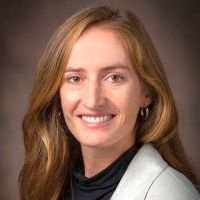
Kyrstin Mallon Andrews, Assistant Professor, Anthropology. Humanities Center Faculty Fellow - Maxwell
- Faculty profile
- kmallona@syr.edu
- 125 Eggers Hall
- 315.443.4216
Project: Crosscurrents of Risk: Navigating Changing Climates, Health, and Conservation in Dominican Seascapes
Mallon Andrews' research addresses the risks inherent in daily lives of people who dive deeper into changing seas, contending both with shifting ocean ecologies and restrictive conservation policy. Based on two years of ethnographic field research in a northwestern Dominican fishing community including participant observation and in-depth interviews with diver fishermen and conservation officials, Andrews' manuscript makes the case that the overlapping experiences of bodily risk and environmental vulnerability illuminate how those on the front lines of changing climates are also those most marginalized by prevailing conservation discourses. The project speaks to critical issues in the relation between human and environmental health, maritime studies, and Caribbean colonial residues.

Patrick W. Berry, Associate Professor, Writing Studies, Rhetoric and Composition. Humanities Center "Symposium" Faculty Fellow
- Faculty profile
- pwberry@syr.edu
- 205 HB Crouse Hall
Project: Literacy and the Humanities after Prison
Berry's current project is a born-digital monograph that offers a much-needed analysis of the supports available to those impacted by the criminal legal system and the potential role that literacy and the humanities can play in helping this population rebuild their lives. Along with documenting personal histories, this book project will consider the power of narrative and community to reimagine identity. The project builds on groundwork established through Project Mend, a humanities-based program for formerly incarcerated people and their families. It consists of a semester-long workshop that provides participants with editorial experience and community dialogue. Program participants work on the production and manufacturing of Mend, a national online and print anthology of work by justice-impacted individuals.
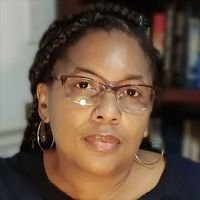
Alicia K. Hatcher, Assistant Professor, Writing Studies, Rhetoric and Composition. Humanities Center Faculty Fellow
- Faculty profile
- akhatche@syr.edu
- 214 HB Crouse Hall
Project: Articulating and Interrogating Black Embodied Resistance: Using Performative Symbolic Resistance as a Tactical, Analytical Tool
Hatcher's monograph is a guide and workbook introducing the concept of Performative Symbolic Resistance (PSR) as a way to describe and analyze the individual acts and performed by activists in their efforts to bring awareness to and combat social injustices. Hatcher defines Performative Symbolic Resistance (PSR) as the use of a specific motion(s) or act(s) to symbolize protest against a socially constructed system of oppression. This project situates Performative Symbolic Resistance (PSR) as a denotative term, an illustrative term, and an analytical tool that scholars, practitioners, and students can use in their continued efforts to examine how performance, performativity, and symbolism are and can be used to engage in acts of resistance.

Chie Sakakibara, Associate Professor, Native American and Indigenous Studies and Geography and the Environment. Humanities Center Faculty Fellow
- Faculty profile
- csakakib@syr.edu
- 144 D Eggers Hall
Project: Exploration of the Indigenous Environmental Humanities: Community Resilience, Sovereignty, and Climate Change on Turtle Island
Sakakibara serves as volume editor of a collaborative manuscript resulting from the 2023 Ray Smith Symposium on “Indigenous Resilience, Climate Change, and the Environmental Humanities” (November 12-13), co-organized with Melissa Chipman (Assistant Professor of Earth & Environmental Sciences). The project brings together voices of Indigenous environmentalists, artists, and activists from Central New York, Alaska, Oklahoma, and California in conversation with the students, faculty, and community members within and beyond SU. This anthology will be steeped in diverse ideas and methods rooted in the environmental humanities to facilitate the future of research sovereignty and knowledge emancipation pursued by Indigenous community members themselves.
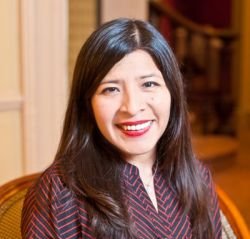
Mariaelena Huambachano, Assistant Professor Native American and Indigenous Studies. Humanities Center Faculty Fellow
- Faculty profile
- mhuambac@syr.edu
- 318 Tolley Humanities Building
- 315.443.3861
Project: Recovering our Ancestral Foodways: Indigenous Traditions as a Recipe for Living Well
Huambachano explores how the Quechua of Peru and Māori of Aotearoa New Zealand describe, define, and enact well-being through the lens of foodways and how they operationalize their understanding within the broader goals of promoting physical and spiritual health and community wellness. Indigenous peoples’ traditional ecological knowledge (TEK) and philosophies must be understood and recognized in relation to Indigenous efforts for safeguarding sustainable food systems because they hold the solutions to global food security. Taking a critical stance towards environmental injustices and inequalities in food security and nutrition, this study engages with the politics of food, settler colonialism, and food sovereignty undergoing rapid social-political changes. The project contributes to growing scholarship in the Indigenous Studies, Food Studies, and Environmental Studies fields, critically examining the role of Indigenous knowledge in providing tools to respond to food insecurity, structural racism, and climate change.
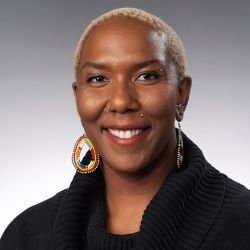
Jenn Jackson, Assistant Professor, Political Science. Humanities Center Faculty Fellow - Maxwell
- Faculty profile
- jjacks37@syr.edu
- Eggers Hall
Project: Making a Revolution: The Radical Possibility of Black Space Making in the Digital Age
For decades, much debate has existed about the relative political importance and efficacy of social media platforms like Twitter and Facebook in mobilizing politically disenfranchised and socially excluded groups like young, Black, queer, and immigrant Americans. In this age of misinformation, the lack of confidence in the voracity of online news sourced from increasingly unknown sources has only undermined social media’s potential benefits to society. However, young Black Americans continue to navigate social media in innovative ways which create and sustain new political spaces rife with transformative possibilities to fundamentally alter the political landscape of American Politics. Jackson's project demonstrates how many see social media as a central component not only in their social world-building but for the building of politically revolutionary ideas and attitudes which extend into brick and mortar style political organizing and collective action.
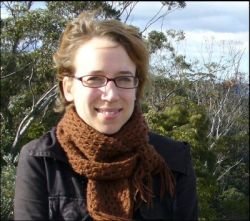
Hille Paakkunainen, Associate Professor and Graduate Director, Philosophy. Humanities Center Faculty Fellow
- Faculty profile
- hpaakkun@syr.edu
- 532 Hall of Languages
Project: Natural Reasons Through Virtue
Paakkunainen's book project defends a new theory of how there can be truths about what we ought to do, or have good reason to do. The work challenges both thoroughly relativistic views on which what we ought to do is simply a function of our culture or personal opinion, no matter how cruel these may be; as well as philosophically dominant non-relativistic views, which usually neglect to seriously consider how cultural and personal context affect one's obligations. Her theory is “naturalistic” in the sense that it explains how our obligations are not some occult addition to the furniture of the world, nor the product of a supernatural deity’s commands, but rather emerge from complex facts about certain familiar kinds of psychological dispositions—virtuous ones—that people can have.
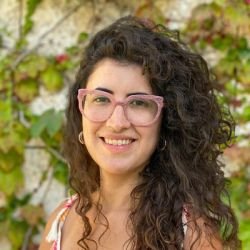
Cristina Pardo Porto, Assistant Professor, Languages, Literatures, and Linguistics. Humanities Center "Symposium" Faculty Fellow
- Faculty profile
- cepardop@syr.edu
- 320 HB Crouse Hall
Project: Seeing through the Tropics. Photographic Interventions of Caribbean Natural Environments
This research addresses visual issues related to race, climate, power, and representation in the insular hispanophone Caribbean, understood as Puerto Rico, Cuba, and the Dominican Republic. In particular, it examines how colonial visual cultures have historically affected the changing social and natural landscape of these islands. Porto's work analyzes the artworks Latitudes // Parallels (2021) by Juana Valdés (Cuba, based in Miami), Sea and Self (2021) by María Magdalena Campos Pons (Cuba, based in Miami), Bienteveo (2022) by Javier Orfón (Puerto Rico), and Woman-Landscape (On Opacity) (2020) by Joiri Minaya (Dominican Republic, based in New York City). From a diasporic point of view, this corpus demonstrates the need to center collective agency, plant knowledge, water memory, and ancient spirituality to contest the problematic representations of tropical natural environments.
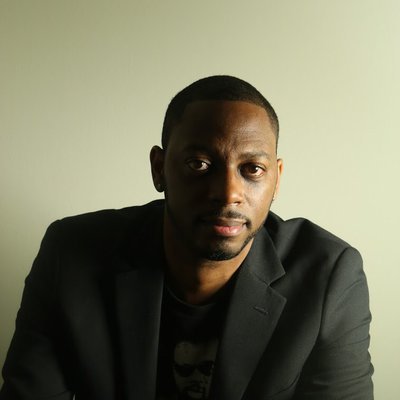
Luvell Anderson, Associate Professor, Philosophy. Humanities Center "Symposium" Faculty Fellow
- Faculty profile
- lander04@syr.edu
- 530 Hall of Languages
- 315.443.2536
Project: Discourse Under Conditions of Oppression
Taking inspiration from the late Charles Mills, Anderson investigates discursive practices as they occur under conditions of oppression. His work aims to develop an integrated approach to the philosophical investigation of language that incorporates tools from the philosophy of language, history, literature, political theory and sociology. By situating discursive practice within its social context, Anderson re-imagines what the philosophy of language might look like.
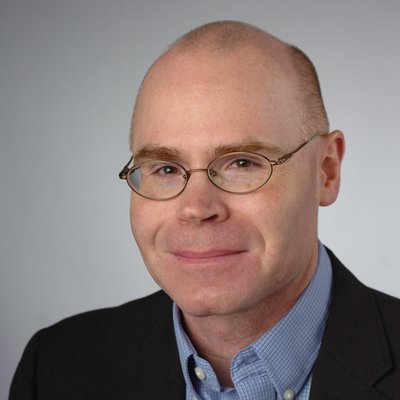
Theo Cateforis, Associate Professor, Art and Music Histories. Humanities Center Faculty Fellow
- Faculty profile
- tpcatefo@syr.edu
- 308 Bowne Hall
- 315.443.4835
Project: “Alternative to What?” Mainstreaming the Margins in 1990s Rock
Alternative rock arose from the 1980s American underground to become one of the 1990s’s best-selling musical phenomena. However, incorporating the music into the mainstream proved to be deeply problematic, as evidenced by Nirvana front man Kurt Cobain’s fear of “selling out” and his resistance to the marketing of alternative as a desirable, rebellious commodity. As critic Thomas Frank memorably lamented at the time, if alternative was indistinguishable from the mainstream, then it begged the question: “Alternative to what?” Cateforis' book project examines alternative’s conflicted musical and cultural terrain, and specifically how alternative musicians engaged with various strategies—ranging from feminist politics to a pervasive sense of ironic detachment—to claim a uniquely unconventional space residing between the periphery and center of popular culture. Their efforts ultimately transformed the music industry, to the point where most new rock artists today are categorized as alternative.
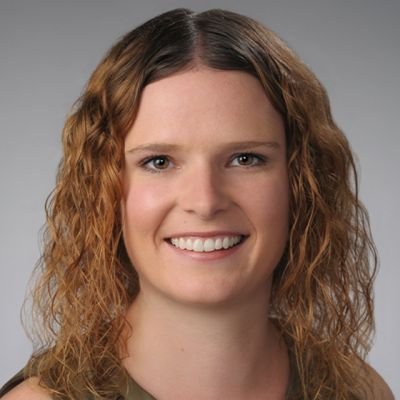
Tessa Murphy, Associate Professor, History. Humanities Center Faculty Fellow - Maxwell
- Faculty profile
- temurphy@syr.edu
- 520 Eggers Hall
- 315.443.5456
Project: Slavery in the Age of Abolition
Murphy is currently working on her second book manuscript. Drawing on detailed British colonial registries of enslaved people that have previously been used primarily for demographic purposes, Slavery in the Age of Abolition focuses instead on the life histories and genealogies derived from close engagement with these archival documents. Focusing on British Crown colonies in the circum-Caribbean, such as St. Lucia, Trinidad, and Berbice, she is at work on a publicly-accessible database and associated book project designed to make the lives and experiences of enslaved people accessible and meaningful to students, researchers, and members of descendant communities. By centering the lived experiences of enslaved people during an era in which the prevailing scholarship focuses on abolition, Murphy's work connects with a variety of disciplines, including Slavery Studies, Disability Studies, and English.
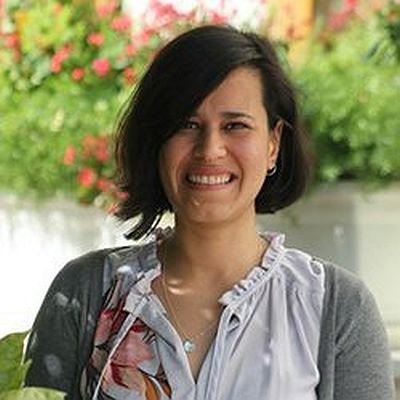
Dana Olwan, Associate Professor, Women's and Gender Studies. Humanities Center Faculty Fellow
- Faculty profile
- dmolwan@syr.edu
- 311 Sims Hall
- 315.443.3707
Project: Mediated Choices: Law and the Right to Marriage and Divorce in the Arab World
Olwan's project traces changes in marriage and divorce laws within a context of legal and personal status reforms that have swept through the Middle East and North Africa, impacting the lives of Arab and Muslim women in major ways. She argues that such changes must be understood in relation to state-backed efforts to assert and extend state sovereignty over women’s rights and women’s bodies. Taking a critical stance towards legal reforms and celebratory accounts of rights-based gains, Olwan's work contributes to growing scholarship in the field of Feminist Middle East Studies that critically examines activism for women’s rights that moors justice to the domain of the legal. The project also engages core questions about the politics of agency, freedom, and justice, issues that are central to research inquiries based in the humanities.
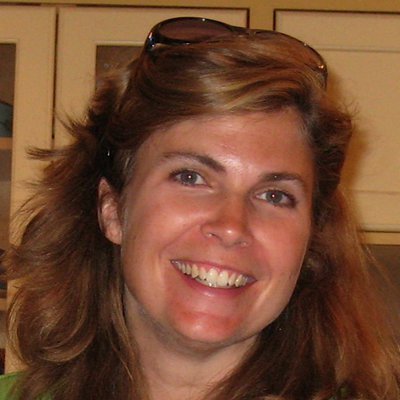
Dorri Beam, Associate Professor, English. Humanities Center “Symposium” Faculty Fellow
- Faculty profile
- drbeam@syr.edu
- 415 Hall of Languages
- 315.443.8112
Project: Literary Experiment and Socialist Form in the American “Age of Fourier”
Beam's book project seeks to invigorate a historical context in which U.S. writers of the 1850s and 1860s engaged with, and even modeled in the literary systems they built, theories of collectivity and relationality that have more to do with utopian socialism than the American. In particular, this project places the Fourierist critique of the family at the center of social movements and literary experiment alike and asks to what extent we can understand radical sexual politics to animate questions of belonging, personhood, and collectivity that are central to major texts of the American Renaissance. Using Fourier’s theory of serial relation, his primary tool for disrupting the “isolated family,” Beam argues that the poetics of serial assemblage evident in an array of literary projects, from Whitman’s Leaves of Grass to late radical Abolitionist novels, is central to their urgent address to questions of social organization.
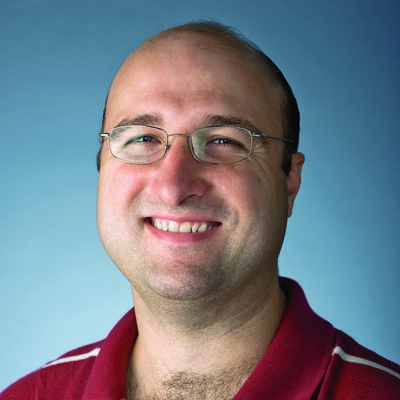
Gareth Fisher, Associate Professor, Religion. Humanities Center Faculty Fellow
- Faculty profile
- gfisher@syr.edu
- 505 Hall of Languages
- 315.443.5914
Project: Temples and Teahouses: Buddhism and Secularism in Contemporary China
Fisher explores the creation of religion under secularism through an ethnographic examination of monastic leaders and laypersons involved in the construction and expansion of Buddhist temples in China. Under strict political secularism of China’s ruling communist state, religions such as Buddhism are restricted to “Religious Activity Sites” to prevent spilling over into secular society. While the state’s aim is to contain religion, the monastics and laypersons building the new temples aim to use them to experiment with moral orientations and forms of sociality not acceptable within mainstream society, thereby exploiting the religious-secular dichotomy as the means to create social imaginaries that are “otherwise.” Building on fieldwork conducted from 2010 to 2018, this project considers how Chinese Buddhist religious sites can foster anti-materialistic critique, the questioning of gender identities and roles, and inversions of class structure.
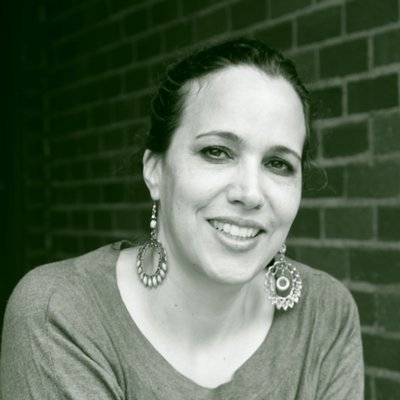
Jeanette Jouili, Associate Professor, Religion. Humanities Center Faculty Fellow
- Faculty profile
- jsjouili@syr.edu
- 512 Hall of Languages
- 315.443.3861
Project: Islam on Stage: Muslim Culture in the Age of Counter-Terrorism
Jouili studies an emerging Muslim popular culture scene in urban Britain in a context where Muslim youth cultures have become sites of intervention for security-oriented government policies. This work investigates how British Muslims related to this scene continuously to critically (re)negotiate—within a political climate that positions them as directly connected to “violent extremism”—a range of potentially contradictory conventions: piety and ethical norms; definitions of what it means to be a Muslim, British, and a citizen; and ideals concerning ‘authentic’ Muslim artistic creativity. Jouili explores the possibilities for collective self-making within and against this network of conventions taking place within the Muslim arts and culture scene, for communities that have become the target of state policies and public discourses, defined by the War on Terror language.

Robert Wilson, Associate Professor, Geography. Humanities Center Faculty Fellow - Maxwell
- Faculty Profile
- mwilson@maxwell.syr.edu
- 533 Eggers Hall
- 315.443.9433
Project: Inundated and Incinerated: Retheorizing Landscape Studies for the Anthropocene
Wilson's working on a major article retheorizing landscape studies in geography and allied fields. Landscape is a central concept in geography and the focus of some of the most innovative scholarship in the discipline over the past thirty years. But most of this work treats landscape as the intentional outcome of human action and has downplayed the role of nonhuman forces. However, the climate crisis has rendered this anthropocentric view of landscape untenable. Sea level rise is inundating cities, megafires are incinerating communities, and other phenomena exacerbated by human-caused climate change are refashioning landscapes around the world. Arguments revealed by this project will retheorize landscapes studies for the Anthropocene--our new geological epoch where human actions have become dominant force reshaping the Earth--and will contribute to humanities perspectives in campus sustainability discussions.
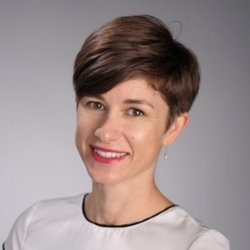
Verena Erlenbusch-Anderson Associate Professor, Philosophy. Humanities Center Faculty Fellow from Arts & Sciences
- Profile
- verlenbu@syr.edu
- 524 Hall of Languages
- 315-443-3155
Project: The Politics of Terrorism: Political Violence and the Challenge of Liberalism
After a series of high-profile instances of white supremacist and misogynist violence in the United States, calls to identify such acts as terrorism have surged in national public discourse. Government agencies like the Department of Homeland Security have begun to apply the term “terrorism” to what they describe as a set of new threats posed by homegrown violence. This project examines the arguments of proponents and critics of this recent policy change to explicate the notion of terrorism and elucidates its dependence on political liberalism. By probing the history of social justice advocacy in the United States, it seeks to make legible alternative understandings of terrorism that are irreducible to a liberal framework. While these alternatives are typically moralized, pathologized, or reduced to consistent uses of the traditional notion of terrorism, this study makes them legible as genuine political alternatives that challenge the presumed universality of liberal values.
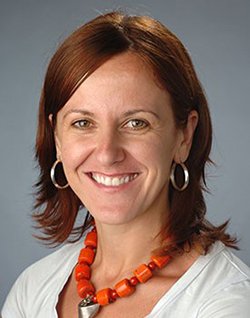
Azra Hromadžić Associate Professor, Anthropology. Humanities Center Faculty Fellow from Maxwell
- Profile
- ahromadz@maxwell.syr.edu
- 209CMaxwell Hall
- 315-443-5782
Project: “We will not give up Una!” Riverine Citizenship and the City in Love with the River in Bosnia & Herzegovina
In 2015, Bihać, a northwestern Bosnian “City in Love with the River,” witnessed a spirited political protest. Thousands of people got together to object to the city’s decision conceding to a Russian-Bosnian Energy Company to build a dam on the city’s river Una. The river is famous for its fast currents, emerald color, tourist potential and for keeping Bihać’s population safe during the 1990’s war. Armed with love for the river, protesters achieved a significant outcome—pressured by the people, the government reversed its decision to grant the concession. This was the only reversal of a city government’s decision in its postwar history. Hromadžić’s project begins from this moment when the political rule stumbled to examine the relational nature of the river, people, love and politics. She illuminates how such elusive elements as love and affect travel between humans and non-humans and inform riverine citizenship in contemporary Bosnia.

Will Scheibel Associate Professor, English. Humanities Center Faculty Fellow from Arts & Sciences
- Profile
- lscheibe@syr.edu
- 431Hall of Languages
- 315-443-9472
Project: Out of a Misty Dream: Gene Tierney, Female Stardom, and Hollywood’s Homefront
The star of Laura (1944), Leave Her to Heaven (1945), and The Ghost and Mrs. Muir (1947), Gene Tierney was one of Twentieth Century-Fox’s major contract players during the 1940s (according to Darryl F. Zanuck, the head of production at Fox, she was “the most beautiful woman in movie history”). Tierney was also one of the first celebrities in the U.S. to undergo treatment for mental illness publicly. Contrary to her popular identification with the iconic Laura portrait, this book argues that her films and performances expose social imaginings of women as passive objects of beauty, and that her star image in the war and immediate postwar U.S. makes an active, dynamic female presence visible. Chapters examine her image-making, unmaking, and remaking across the roles of pinup girl and “war worker,” domesticated Army wife, mother, female psychiatric subject, and comeback star.
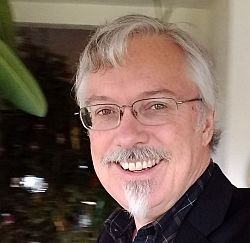
James W. Watts Professor, Religion. Humanities Center Symposium Faculty Fellow from Arts & Sciences
- Personal Site
- jwwatts@syr.edu
- 501Hall of Languages
- 315-443-5713
Project: Imagining the Economics of Jubilee: Utopia Before and After Utopias
Watts’ career-long research on the biblical book of Leviticus now hones in on chapter 25. It contains utopian legislation for resetting agriculture, land transactions, and slavery every 50 years, during what it calls the “Jubilee” year. While the surrounding story of the exodus to the promised land is famous for both inspiring freedom movements as well as being used to justify settler colonialism in the Americas, Africa, and the Middle East, the influence of this chapter’s vision of a static agrarian community is less well known. Later Jewish and Christian traditions have often used the Jubilee as a symbol of release and freedom. Yet the distinction between native and foreign slaves, freeing the former but not the latter in the Jubilee, has been used to justify racialized chattel slavery. Watts’ exploration of the history of Leviticus 25 in interpretation and economic practice offers a vantage point for observing some of the social effects—both oppressive and liberating—from envisioning economic futures based on a utopian vision of the past.
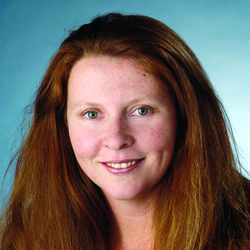
Amanda Brown Associate Professor, Linguistics. Humanities Center Faculty Fellow from Arts & Sciences
- Profile
- abrown08@syr.edu
- 323C HB Crouse Hall
- 315-443-2244
Project: The Multicompetent Linguistic System in Development
Languages encode concepts differently, which raises the question of how differences in conceptual and linguistic representations are reconciled when individuals acquire multiple languages and become ‘multicompetent’. Through examinations of a large multimodal corpus of elicited narrative data, this project addresses (1) to what extent conceptual and linguistic representations among native Japanese and Mandarin-Chinese speakers of English as a second/foreign language are characterized by multicompetence versus universal features of development; (2) what the time course is for the development of multicompetent versus universal features, (3) and whether the multicompetent features are shaped by linguistic or cultural forces.
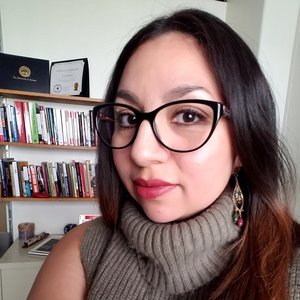
Aja Y. Martinez Assistant Professor of Writing Studies, Rhetoric, and Composition. Humanities Center Faculty Fellow from Arts & Sciences
- 234HB Crouse Hall
- 315-443-5592
Project: Counterstory: The Writing and Rhetoric of Critical Race Theory
This book project makes a case for counterstory as methodology in rhetoric and writing studies through the well-established framework of Critical Race Theory (CRT). Martinez specifically review the counterstory work of Richard Delgado, Derrick Bell, and Patricia J. Williams, termed “counterstory exemplars.” Delgado, Bell, and Williams are foundational critical race theorists whose respective counterstory genres of Narrated Dialogue, Fantasy/Allegory, and Autobiography have set precedent for others who would research and compose with this method. Shaped by Martinez’s standpoint as a scholar in the Humanities, this project in critical race methodology applies racial and feminist rhetorical criticism to the rich histories and theories established through Delgado, Bell, and Williams’ counterstory genres, all the while demonstrating how CRT theories and methods can inform teaching, research, and writing/publishing of counterstory.

Kathryn A. Everly Professor of Spanish. Humanities Center Symposium Faculty Fellow from Arts & Sciences
- Profile
- keverly@syr.edu
- 329HB Crouse Hall
- 315-443-2042
Project: The Other Side of the Story: Salaria Kea and the Spanish Civil War
Salaria Kea was the only African-American woman to serve with the second American Medical Unit to Republican Spain in 1937 as part of the effort to combat fascism during the Spanish Civil War. Her letters and diaries reveal the unique experience of a committed activist who fought for racial and gender equality both in the U.S. and in Europe. Her perspective counters dominant European narratives about the conflict in Spain and gives voice to the buried experience of women and African-Americans. Through archival research, Everly's project aims to begin to fill the void by giving voice to Kea’s experience, analyzing her own writing about the Spanish conflict and reflecting on the oftentimes deafening silence of the canon and archive.

Timur Hammond Assistant Professor of Geography. Humanities Center Faculty Fellow from Maxwell
- Portrait
- twhammon@syr.edu
- 144 CEggers Hall
- 315-443-3533
Project: Placing Islam in Istanbul: Buildings, Stories, and Belonging in a Changing City
Hammond’s work examines the shifting practices through which Islam has come to be located in Istanbul over the past century. Drawing on archival and ethnographic fieldwork, this project shows that Eyüp’s Islamic identity – and thus the place of Islam – is in fact considerably more complex. Examining forms of connection that range from story-telling to prayer to urban transformation to neighborhood sociability, this project helps articulate an approach for understanding Islam that takes its geographies as a starting point to explore the links between religion, social relationships, and urban life.
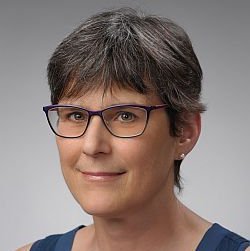
Audie Klotz Professor of Political Science. Humanites Center Faculty Fellow from Maxwell
- Profile
- aklotz@syr.edu
- 330 Eggers Hall
- 315-443-8678
Project: Gender and Nationality
As readily evident in headlines from across Europe and the US-Mexico border, longstanding commitments to refugee protection face new challenges, such as safe-country exceptions, bilateral deals, and unlawful detentions. However, the skeptical view that global governance of migration is inherently weak masks how deeply embedded notions of family underpin all regulation of cross-border human mobility. Drawing on League of Nations archives, this project documents how nationality, a keystone principle since (only) the 1920s, has created a fundamentally gendered architecture of migration governance.
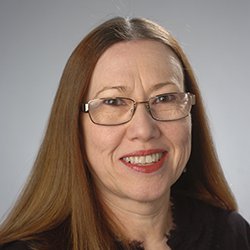
Myrna García-Calderón Associate Professor, Spanish (Languages, Literatures, and Linguistics); Undergraduate Adviser; Director of Latino-Latin American Studies Program. Humanities Center Fellow, Arts & Sciences
- Profile
- mygarcia@syr.edu
- 310HB Crouse Hall
- 315.443.9489
Project: Space, Place, and Home: Washington Heights, East Harlem and Little Havana’s Evolving Profile as Ethnic Communities
What does it mean to have ‘a sense of place’ or belonging? What relationships exist between place, self, community and memory? Which have been idealized or understood over time? García-Calderón answers these questions and others by analyzing literary and cultural texts, the projects of cultural organizations, and evolving migratory patterns of three Caribbean-Latino groups. She explores how ethnicity is applied to communities where national origin and cultural bonds are rapidly blending into a broader concept of Latinidad.
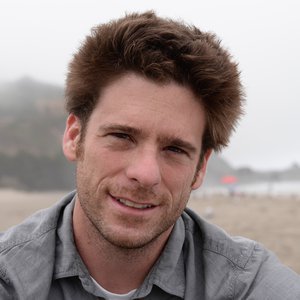
Michael Rieppel Assistant Professor, Philosophy. Humanities Center Fellow, Arts & Sciences
- Profile
- morieppe@syr.edu
- 523Hall of Languages
- 315.443.2519
Project: Singular Terms and Aboutness
A remarkable fact about language is that we can understand all manner of sentences, even ones we have never encountered before. We are able to do so on the basis of understanding the individual words they contain. Yet, Rieppel asks, what do individual words mean, or denote? One category of expressions for which the answer might seem obvious is that of singular terms: words, such as proper names, that we use to refer to particular things. Doesn't a name like 'Alice' just denote the individual we use this name to talk about? Rieppel explores reasons for rejecting this “Aboutness Thesis,” and the consequences of doing so.
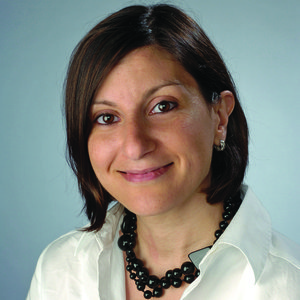
Carol Fadda Associate Professor, English. Humanities Center Symposium Faculty Fellow from Arts & Sciences
- Profile
- cfaddaco@syr.edu
- 411Hall of Languages
- 315.443.2173
Project: Carceral States, Dissident Citizenships: Arab & Muslim Narratives in an Age of “Terror”
Fadda studies literary texts, testimonials, and films that capture the experiences of incarcerated and tortured Arabs and Muslims in local and global contexts. She draws on feminists of color and anti-imperial critiques of the US prison industrial complex and its connections to incarceration sites in the Global South, with particular focus on narratives coming out of secret and extra-legal incarceration sites within and outside the US in the ongoing “Global War on Terror.”
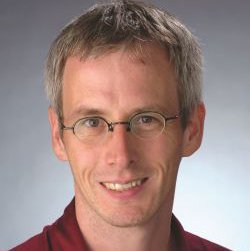
Albrecht Diem Associate Professor, History. Humanities Center Fellow, Maxwell School
- Profile
- adiem@syr.edu
- 538Eggers Hall
- 315.443.0785
Project: The Confessing Animal: Towards a History of Confession as Cultural Practice
Michel Foucault characterized the Western individual as a ‘confessing animal,’ drawing a line from the medieval confessional to psychoanalysis and therapy. Yet, little scholarship examines the historical diversity of confessional practices. Since tracing confessional practices, rituals, and theological frames requires collaboration, Diem’s project is twofold: he sets the ground for collaborative approaches to confession from a diachronic, cross-cultural perspective and examines confession in an early medieval monastic context in which confession moved from the monastic sphere to become a pastoral tool in the wider Christian community.

Mike Goode Associate Professor, English. Humanities Center Faculty Fellow from Arts & Sciences
- Profile
- mgoode@syr.edu
- 432Hall of Languages
- 315-443-9482
Project title: Romantic Capabilities: The Media Behaviors of William Blake, Jane Austen, and Walter Scott
Project Abstract: Romantic Capabilities examines some of the media forms in which Romantic-era literary texts by William Blake, Jane Austen, and Walter Scott have taken on new life, with an eye especially on instances where an author’s corpus has particularly flourished for some period of time in a specific media form, through a specific mode of medial dissemination, or through a specific kind of reader participation. The book takes up three cases: the viral circulation of Blake’s proverbs and pictures; the creation of fan fictions set in the story-worlds of Austen’s novels; and early virtual reality media experiments involving Scott’s historical novels. The basic premise of the project is that while any given “media behavior” of a text can advance a wide range of interpretations and political agendas, the behavior itself proves revelatory of latencies in the text’s form, latencies which sometimes force us to rethink the text’s significance for the time it was written.

Radha Kumar Assistant Professor, History. Humanities Center Faculty Fellow from Maxwell
- Profile
- rkuma100@syr.edu
- 514Eggers Hall
- 315-443-5875
Project Title: Police, Everyday Violence, and Governmentality in Colonial India
Project Abstract: Building on Kumar's current research, this project will explore the role of routine violence and a rural spatiality – both of which characteristics distinguish colonial governance from governmentality in its classical, European sense – in the exercise of colonial governmental power, to contribute to a broader literature that seeks to delineate the particularly colonial configuration of modern forms of power.
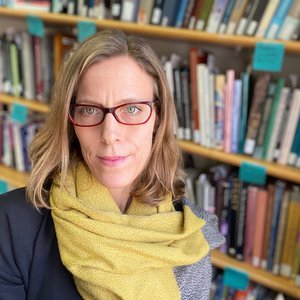
Sascha Scott Associate Professor, Art and Music Histories. Humanities Center Symposium Faculty Fellow from Arts & Sciences
- Profile
- sscott04@syr.edu
- 308Bowne Hall
- 315‐443‐5033
Project Title: Modern Pueblo Painting: Art, Colonization, and Aesthetic Agency
Project Abstract: Scott's research foregrounds the art of five Pueblo painters (circa 1910-1950) to highlight the various ways in which indigenous artists in the United States have asserted their aesthetic agency in the face of the harsh realities of ongoing colonialism. Her work is concerned with how Native artists creatively adopt, confront, transform, and subvert colonial culture and structures, and how their art serves the creative, economic, and political needs of the artists themselves and often their communities.
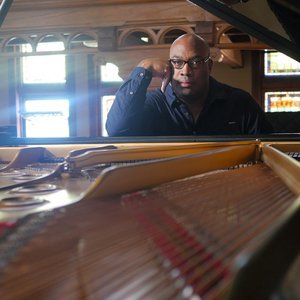
James Gordon Williams Assistant Professor, African American Studies. Humanities Center Faculty Fellow from Arts & Sciences
- Profile
- jgwillia@syr.edu
- 208Sims Hall
- 315-443-9184
Project Title: Crossing Bar Lines: Improvising the Black Subject Through Music
Project Abstract: Williams' work tells a compelling story about African American musicians who use improvisational, compositional, and technological practices to create complex commentaries on black life. The musical choices that a musician makes are shaped by both her understanding of musical practices and by social life. Building on critical improvisation studies scholarship, his book features case studies of musicians whose body of work has been created between the 1960s and our modern time. This text contributes to the vibrant discussion on how African American artists use musical practices as a way of creating spaces for black civil society within the dominant white society and how these spaces energize marginalize communities.
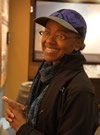
Joan Bryant Associate Professor, African American Studies and Undergraduate Studies Director. Humanities Center Symposium Faculty Fellow from Arts & Sciences
- Profile
- jobryant@syr.edu
- 201 Sims Hall
Project title: Kinship, Labor, and the 19th-Century Worlds of Asa Valentine, FMC
In her project, Bryant explores the meanings of place using the record book of Asa Valentine, a free man of color in southwestern New Jersey. The journal, which he began in 1845, documents eighteen years of his life. This unpublished, never-referenced document is a starting point for mapping the contours of Black life in a place situated on the edge of the free North.
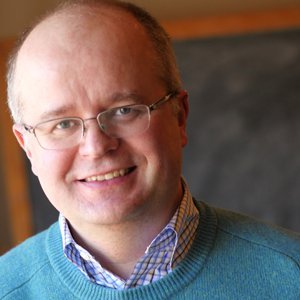
Roger Hallas Associate Professor, English. Humanities Center Faculty Fellow from Arts & Sciences
- Profile
- rhallas@syr.edu
- 433 Hall of Languages
Project title: A Medium Seen Otherwise: Photography and Documentary Film
For this project, Hallas examines the significant, but critically neglected, relationship between photography and documentary film through analysis of an international range of documentary films, photobooks and web documentaries.

Scott Manning Stevens Associate Professor, Native American Studies and Director. Humanities Center Faculty Fellow from Arts & Sciences
- Profile
- scsteven@syr.edu
- 314 Tolley Humanities Building
Project title: Indian Collectibles: Encounters, Appropriations, and Resistance in Native North America
Stevens’ research traces the colonial legacy’s direct influence on modern Native American self-expression in literature and the visual arts, organized around a series of case studies exploring cultural appropriation (and resistance to it) as manifested in natural history museums, fine arts collections, and libraries.
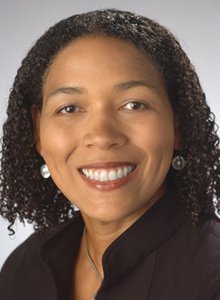
Dawn M. Dow Assistant Professor, Sociology.
- Profile
- dmdow@syr.edu
- 319 Maxwell Hall
Dawn Marie Dow is an assistant professor in the sociology department of the Maxwell School of Citizenship and Public Affairs at Syracuse University. Professor Dow earned a Ph.D. in sociology from University of California, Berkeley and a J.D. from Columbia University, School of Law. She is a Faculty Fellow in the both the Institute for the Study of the Judiciary, Politics, and the Media and the Humanities Center. Professor Dow’s research focuses on the intersection of gender, race, and class within the context of the family, the workplace, educational settings and the law. She is currently preparing a book manuscript that examines African American middle-class mothers’ views and decision-making about work, family and childcare and how they approach parenting their children.

Steve Parks Associate Professor, Writing and Rhetoric.
- 201 HB Crouse Hall
Steve Parks is an associate professor of writing and rhetoric. His work explores how marginalized communities can use writing and publication to gain increased political and cultural efficacy. He is author of Class Politics: The Movement for the Students' Right to Their Own Language as well as Gravyland: Writing Beyond the Curriculum in the City of Brotherly Love. He is also co-editor of Circulating Communities, Listening to Our Elders, and Republic of Letters (scholarly edition).
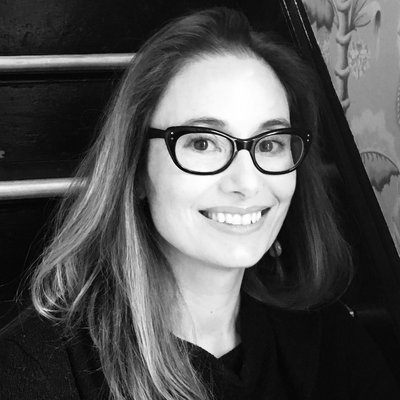
Dana Spiotta Associate Professor.
- Profile
- dspiotta@syr.edu
- 309 Hall of Languages
Dana Spiotta is the author of four novels: Lightning Field, published by (Scribner, 2001); Eat the Document (Scribner, 2006), which was a finalist for the 2006 National Book Award and a recipient of the Rosenthal Foundation Award from the American Academy of Arts and Letters; Stone Arabia (Scribner, 2011), which was a National Book Critics Award Finalist in fiction; and Innocents and Others, which will come out from Scribner in 2016. Spiotta was a Guggenheim Fellow in 2008, a New York Foundation for the Arts Fellow in 2009, and she won the 2008-9 Rome Prize form the American Academy in Rome. She is an Associate Professor in the Syracuse University MFA program.
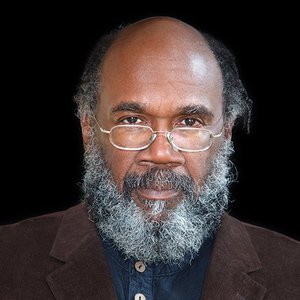
Arthur Flowers Associate Professor, Creative Writing.
- Profile
- arflower@syr.edu
- 414 Hall of Languages
Arthur Flowers is an Associate Professor in the Creative Writing Program at Syracuse University. He is author of novels and nonfictions, including Another Good Loving Blues, Mojo Rising: Confessions of a 21st Century Conjureman, and I See The Promised Land, Tara Books, India. He is a Delta based performance poet, webmaster of Rootsblog, and has been Executive Director of various nonprofits and the Harlem Writers Guild.
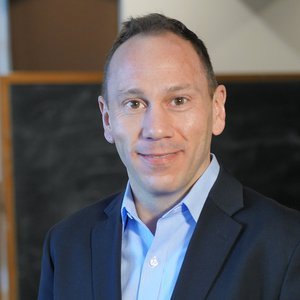
William Robert Assistant Professor, Religion.
- Profile
- wrobert@syr.edu
- 305 Tolley Humanities Building
- 315-443-3133
William Robert is an Assistant Professor of Religion. He is also an affiliate faculty member in the Department of Women’s and Gender Studies and in the Programs in LGBTQ Studies and in Medieval and Renaissance Studies. His research concerns the limits of “the human” and what happens when human beings approach, touch, or cross those limits. He explores these limits by examining experiences of mysticism and sexuality. He does so at intersections of religion, philosophy, history, and culture. His research project during his time as a Humanities Center Faculty Fellow focuses on Angela of Foligno, a thirteenth-century Christian mystic. He reads her extraordinary experiences as a limit case of what he calls “extreme humanity.” His readings are also a test case of different corporealities, different sexualities, and different sexual differences across human-divine edges.
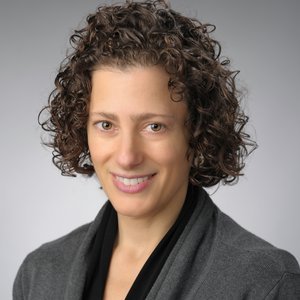
Samantha Kahn Herrick Associate Professor, History.
- Profile
- sherrick@syr.edu
- 527 Eggers Hall
- (315) 443-4387
Samantha Kahn Herrick is an Associate Professor in the History Department at Syracuse University. She holds a Ph.D. from Harvard University, an M.Phil. from Oxford University, and a B.A. from Columbia University. Her research explores how medieval Christians constructed, used, and shared history by examining the stories they told about their local saints. Her first book, Imagining the Sacred Past: Hagiography and Power in Early Normandy (Harvard University Press, 2007), demonstrated that such stories could legitimate new and controversial political regimes. Her current research focuses on legends honoring the saints who, ostensibly, brought Christianity to northern Europe. These legends were local productions designed to serve local needs; yet they also circulated widely and thus reached distant audiences, who often reworked them to give them new meaning. This research explores the shifting networks that enabled these stories to travel over space and time, as well as the process of historical construction in which far-flung authors, scribes, and audiences collaborated. The goal is to learn how medieval communities shared ideas and how medieval people collectively constructed and understood history.
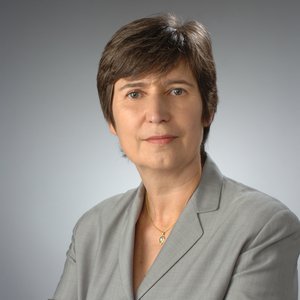
Karina von Tippelskirch Associate Professor, Languages, Literature & Linguistics.
- Profile
- kvontipp@syr.edu
- 315 HB Crouse Hall
- 315-443-5383
Professor von Tippelskirch’s fields of interest include 20th century and contemporary German literature and culture, translation, transnational literary and cultural movements. Her research areas are German exile literature, German-Jewish and Yiddish literature and culture. Her publications include books and articles on Rajzel Zychlinski, a major Yiddish poet, whose poems she also translated, articles on Rose Ausländer, Anna Margolin, Mascha Kaléko, Marica Bodrožić and Daniel Kehlmann. Her current research project is on the American journalist Dorothy Thompson who befriended and ultimately helped to rescue many German and Austrian writers and intellectuals from Nazi-occupied Europe.
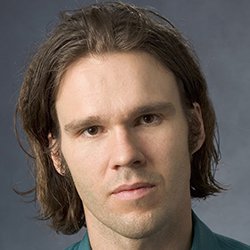
Kevan Edwards Assistant Professor, Philosophy
- Profile
- kedwar02@syr.edu
- 525 Hall of Languages
- 315-443-5821
Kevan Edwards primarily works in philosophy of mind, philosophy of language and cognitive science. He is especially interested in a framework that combines a use-theoretic conception of natural language with a compositional and referentialist-cum-representational account of mental content. He has side-interests in related areas of metaphysics and epistemology.
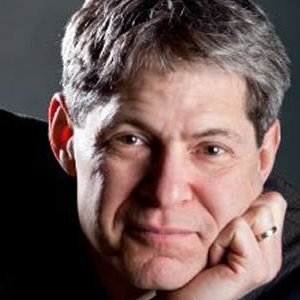
Ken Frieden Professor, Languages, Literatures and Linguistics and B.G. Rudolph Chair of Judaic Studies.
- Profile
- kfrieden@syr.edu
- 506 Hall of Languages
- 315-443-3861
Professor Frieden takes a comparative literature approach to Yiddish and Hebrew writing, in the broader contexts of European and world literature. From this perspective, he recently completed a book on Travel and Translation in Jewish Literature.
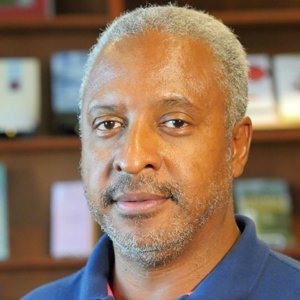
Kwame Dixon Assistant Professor, African American Studies.
Dr. Dixon (Ph.D., Clark-Atlanta) specializes in Latin America and the Caribbean, Afro-politics and democracy in Latin America and the Caribbean, human rights and civil society, social movements,
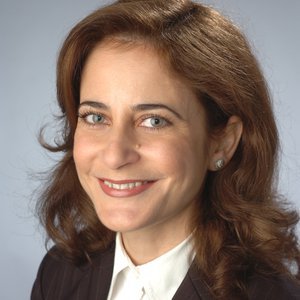
Rania Habib Associate Professor, Arabic and Linguistics; Arabic Program Coordinator.
- Profile
- rhabib@syr.edu
- 325 HB Crouse Hall
Dr. Habib specializes in sociolinguistics particularly language variation and change. Other interests include bilingualism, cross-cultural communication, child and adolescent language and Second Language/Dialect Acquisition, phonology, Pragmatics, and Syntax. Her research is interdisciplinary as it combines a number of subfields of linguistics, applying formal linguistic theory such as Optimality Theory and the Gradual Learning Algorithm to sociolinguistic variation. She has also applied qualitative and quantitative methods of analyses to sociolinguistic variation and change. Her present research deals with dialectal variation in the Arab World particularly the colloquial Arabic of rural migrant speakers to urban centers and the change that their speech undergoes because of social factors, such as prestige, age, gender, and residential area, contact, etc. She is also interested in the influence of urban dialects on rural ones without undergoing migration to urban centers. She is currently investigating the spread of urban linguistic features in the Syrian Arabic of rural children and adolescents.
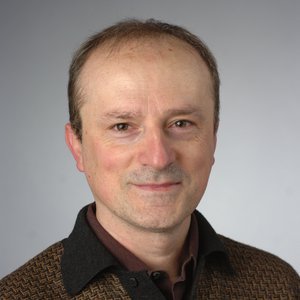
Stefano Giannini Associate Professor, Italian; Italian Program Coordinator.
- Profile
- giannini@syr.edu
- 302 HB Crouse Hall
- 315-443-2136
Stefano Giannini teaches Modern Italian literature. His research focuses on the historical novel and the dialectis memory/oblivion. A graduate of the University of Genoa (Italy), he studied at the University of Oregon and completed a Ph.D. in Italian Studies at the Johns Hopkins University. He taught at Wesleyan University in Connecticut, and at the University of Calgary (Canada). At SU he is the coordinator of the Italian program.
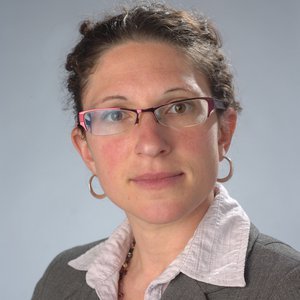
Amy Kallander
Amy Kallander is assistant professor of Middle East History, and associated faculty in the department of Women’s and Gender Studies. She came to Syracuse from the University of California, Berkeley where she earned a PhD in Middle East history in 2007, and teaches courses on the Ottoman Empire, the modern Middle East, Orientalism, Gender, Race and Colonialism, and Popular Culture in the Middle East. Her first book project is a social history of women and the family that governed Tunisia in the Ottoman period (18th and 19th centuries). Since the Tunisian Revolution she has turned to more contemporary events, current projects include bloggers and the Tunisian revolution, French support for Tunisian authoritarianism, women, family and representations of Tunisian modernity.
Arsalan Kehnemuyipour Professor, Linguistics. (former SU faculty)
Professor Kahnemuyipour received his PhD in Linguistics from the Department of Linguistics at the University of Toronto in 2004. He taught at Syracuse University from 2004 to 2010. He joined the Department of Language Studies at U of T Mississauga in 2010.
His areas of expertise are syntax (sentence structure), morphology (word structure) and the interface between syntax and phonology (the sound system). He has worked on a number of languages including his native Persian, as well as English, Armenian, Turkish, Niuean, among others. He has published a book with Oxford University Press and articles in top ranked journals such as Natural Language and Linguistic Theory and Linguistic Inquiry. His project while serving his Humanities Center fellowship was cross linguistic investigation of verb agreement in copular sentences.

Bruce Smith Professor of English, College of Arts and Sciences.
- Profile
- bfsmith@syr.edu
- 307C Hall of Languages
- 315-443-2173
Born and raised in Philadelphia, PA, Smith attended Bucknell University where he stayed to earn a MA in English and work at The Federal Penitentiary in Lewisburg. He has taught at Tufts, Boston, and Harvard Universities, on the West Coast at Portland State and Lewis & Clark College, and at University of Alabama before coming to Syracuse in 2002. He is the author of six books of poems, The Common Wages, Silver and Information (National Poetry Series, selected by Hayden Carruth), Mercy Seat, The Other Lover (University of Chicago), which was a finalist for both the National Book Award and the Pulitzer Prize, Songs for Two Voices, and Devotions, (Chicago, 2011). Devotions has been named a finalist for the National Book Award, the National Book Critics Circle Award and the Los Angeles Times Book Award. Poems in this collection have appeared in The Best American Poetry, 2003 and 2004, The New Yorker,The Nation, The New Republic, The Paris Review, The Partisan Review, Kenyon Review,Poetry, The American Poetry Review, and were included in the Best of the Small Presses anthology for 2007, 2008, 2009, 2010. Essays and reviews of his have appeared in Harvard Review, Boston Review, and Newsday. He has been a fellow at the Fine Arts Work Center and was a winner of the Discovery/The Nation prize. In 2000 he was a Guggenheim fellow and has twice been a recipient of fellowships from the National Endowment of the Arts. In 2010 he received an award in Literature from the American Academy of Arts and Letters.
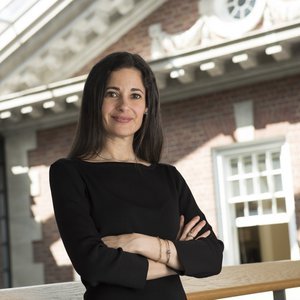
Elizabeth Cohen Associate Professor, Political Science.
- Profile
- efcohen@syr.edu
- 310 Eggers Hall
- 315-443-5870
Cohen's areas of specialization include contemporary and modern political theory, history of political thought, immigration and citizenship. During the term of her Humanities Center fellowship, Cohen's research focused on "Jus Temporis and the Sovereignty of Time in Citizenship." This project develops and illustrates the theory that the variables of date and time serve a role equal to that of place and lineage in the assignment of citizenship. Much like sovereign physical boundaries, boundaries in time clearly delineate the people for whom a polity is responsible and in exactly what capacity. The establishment of pivotal dates and durations of time reflects a set of beliefs and commitments about what time represents for political life and for the normative underpinnings of a political community.

Amos Kiewe Professor, Communication and Rhetorical Studies.
- Profile
- akiewe@syr.edu
- 107 Sims Hall
- 315-443-5132
Kiewe's areas of research are in rhetorical theory and criticism, political communication, presidential studies, argumentation, and persuasion. Most recently he began teaching and researching with students unsolved Civil Rights murders.
Kiewe has published in such journals as Communication Studies, Legal Studies Forum, Journal of American Culture, Argumentation and Advocacy, and Southern Communication Journal. He is the author of several books, including FDR’s First Fireside Chat: Public Confidence and the Banking Crisis (Texas A&M Press, 2007), co-authored FDR’s Body Politics: The Rhetoric of Disability (Texas A&M Press, 2003), A Shining City on a Hill: Ronald Reagan's Economic Rhetoric, 1951-1989 (Praeger, 1991), co-edited Actor, Ideologue, Politician: The Public Speeches of Ronald Reagan (Greenwood, 1992), and edited The Modern Presidency and Crisis Rhetoric (Praeger, 1994).
